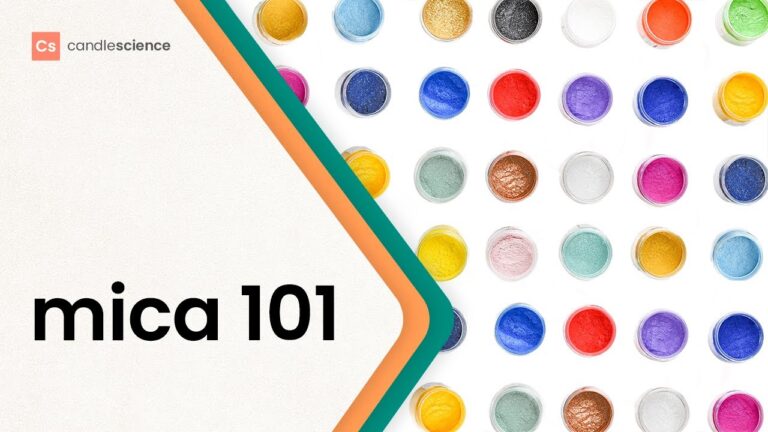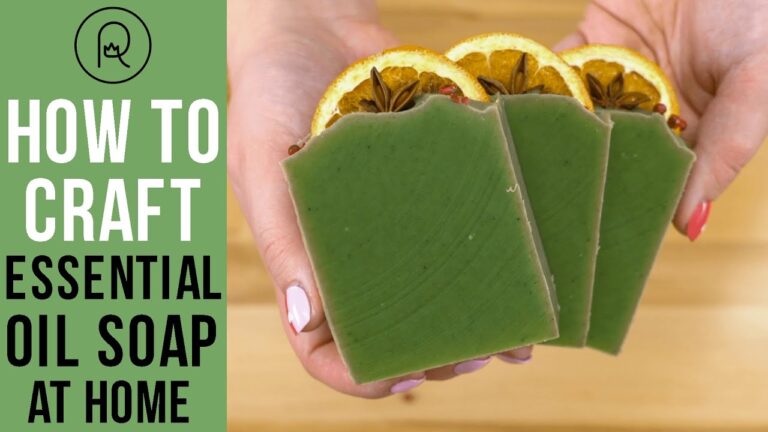In the quest for germ-free hands, choosing the right antibacterial additives for your soap is crucial. With a plethora of options available, it’s important to understand the benefits and drawbacks of each ingredient. From triclosan to tea tree oil, the possibilities are endless. In this article, we’ll delve into the world of antibacterial additives for soap, guiding you in making the best decision for your hygiene needs.
What is the antibacterial additive for soap making?
When it comes to making antibacterial soap, the go-to additives are triclosan and triclocarban. These compounds are widely used for their effective germ-fighting properties. Additionally, ingredients like benzalkonium chloride, benzethonium chloride, and chloroxylenol are also commonly found in antibacterial soaps, providing an extra layer of protection against harmful bacteria.
In the world of soap making, the key to creating a powerful antibacterial product lies in the choice of additives. Triclosan and triclocarban are top contenders for their proven antibacterial properties, while benzalkonium chloride, benzethonium chloride, and chloroxylenol also make excellent choices for those looking to boost the germ-fighting capabilities of their soap. With these powerful ingredients, you can ensure that your soap not only cleans but also protects against harmful bacteria.
Are soaps with antibacterial additives beneficial?
While many people believe that using antibacterial soaps can provide extra protection against germs, the FDA’s stance suggests otherwise. The lack of scientific evidence supporting the effectiveness of antibacterial additives raises questions about their true benefits. In fact, washing hands with plain soap and water is still considered the best way to prevent the spread of illness.
With the FDA’s statement in mind, it’s important to reconsider the use of antibacterial soaps in our daily hygiene routines. Instead of relying on potentially ineffective products, focusing on proper handwashing techniques with regular soap is a more reliable way to maintain good hygiene. By following the FDA’s guidance, we can make informed choices that prioritize health and safety.
What causes certain soaps to be antibacterial?
Antibacterial soaps are designed to prevent bacterial growth and eliminate pathogens, with the key ingredient being triclosan. This chemical additive is commonly used in various consumer products such as clothing, toys, furniture, and kitchenware to effectively inhibit the spread of bacteria and reduce the risk of contamination.
Enhancing Soap’s Germ-Fighting Power
Soap just got an upgrade with our new formula designed to enhance its germ-fighting power. Our innovative blend of ingredients not only cleanses your skin, but also creates a powerful barrier against harmful bacteria and viruses. Say goodbye to worries about germs, and hello to a fresh, clean feeling that lasts all day.
Experience the next level of cleanliness with our advanced soap formula. By boosting its germ-fighting capabilities, we’ve taken ordinary hand washing to a whole new level. Trust in our product to keep you and your loved ones safe and protected, while also leaving your skin feeling soft and refreshed. Choose our enhanced soap for a superior clean that goes beyond the surface.
A Guide to Effective Antibacterial Additives
When it comes to choosing the right antibacterial additives, it’s important to consider both effectiveness and safety. With a wide range of options available, from silver nanoparticles to essential oils, it’s crucial to carefully evaluate the efficacy of each additive in killing bacteria, while also ensuring that it is safe for use in various applications. Whether you’re looking to enhance the antibacterial properties of household products or medical devices, this guide will help you navigate the world of antibacterial additives and make informed decisions for your specific needs.
Boosting Soap’s Hygiene Benefits
Elevate your daily hygiene routine with our specially formulated soap designed to not only cleanse, but also nourish and protect your skin. Infused with natural ingredients like tea tree oil and shea butter, our soap is gentle yet effective in removing dirt and impurities while maintaining the skin’s natural moisture balance. Say goodbye to dryness and hello to softer, healthier skin with our soap that not only cleanses, but also boosts your overall hygiene benefits.
Choosing the Right Ingredients for Germ-Free Hands
When it comes to keeping your hands germ-free, choosing the right ingredients is essential. Look for hand sanitizers and soaps with high levels of alcohol or other antimicrobial agents, as these are the most effective at killing germs. Additionally, opt for products with moisturizing ingredients like aloe vera or glycerin to prevent dryness and irritation. By selecting products with the right ingredients, you can ensure that your hands stay clean and healthy without sacrificing moisture.
In the quest for germ-free hands, the right ingredients can make all the difference. Seek out hand sanitizers and soaps with potent antimicrobial agents, such as alcohol, to effectively eliminate germs. Moreover, prioritize products with moisturizing elements like aloe vera or glycerin to keep your skin hydrated and nourished. By making informed choices about the ingredients in your hand hygiene products, you can maintain germ-free hands without compromising on skin health.
In conclusion, the choice of antibacterial additives for soap is crucial in ensuring the product’s effectiveness in killing germs and bacteria. By considering factors such as safety, efficacy, and environmental impact, manufacturers can select the most suitable additives to create a high-quality antibacterial soap. With the increasing demand for hygiene products, it is essential to prioritize the selection of additives that not only meet regulatory standards but also address consumer concerns. Ultimately, a well-informed decision in choosing antibacterial additives will contribute to the production of soaps that promote health and cleanliness.



